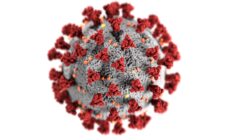What is heart failure
HEART FAILURE is the failure or mal function of heart to pump blood to the sufficient need of the body function. It is also referred by the term CONGESTIVE HEART FAILURE. It has congesting effects on the lungs, abdomen and lower extremities. Excess pressure on the heart pumping action or work load of heart muscle leads to fluid retention in the body. This fluid retention is said to be congestion. Heart failure is the incurable disease but with the technology available and medication facility it can be managed effectively.
what are the types of heart failure
LEFT-SIDED HEART FAILURE: most common type of heart failure affecting the left side of the heart. Left ventricles are unable to pump blood to rest of the body. Congestion is mainly seen in lungs leading to breathing difficulties. RIGHT-SIDED HEART FAILURE: Associated with the left heart failure. Mainly the right ventricles are unable to pump blood. Congestion is seen in abdomen and lower extremities leading to swelling in legs. SYSTOLIC HEART FAILURE: no essential ventricles contraction force to pump blood. DIASTOLIC HEART FAILURE: no relaxation of ventricles to fill the blood in heart.
Conditions leading to heart failure :
-
- Coronary artery disease – the blockages in coronary artery affecting the supply of blood to the heart muscle leading to defect in pumping action of heart.
-
- Hypertension (high blood pressure) – increase in pressure increases the work load of the heart.
-
- Valve disease (any defect in the valves of the heart) – the valves become narrow obstructing the blood flow and increasing the pressure in the heart pumping.
-
- CARDIOMYOPATHY (weakness of the heart muscles) – the heart muscle is enlarged with the damage and pumping action becomes poor.
-
- MYOCARDITIS – inflammation of cardiac muscle.
-
- Lung conditions
-
- Kidney condition
- diabetes
Other causes are:
-
- Genetic transmission
-
- Over weight
-
- Over stress
-
- Alcohol addiction
-
- Drug addiction
-
- Excess salt in diet
- Chronic abnormal heart rhythms
signs and symptoms of heart failure :
-
- Fluid retention -The most commonly seen symptoms are the retention of water and fluid in the body. The retention occurs due to improper blood supply to the kidney. The retention leads to swollen ankle and legs and edema formation in abdomen.
-
- Fatigue – The reduction in blood supply causes tiredness all over the body.
-
- Mental confusion -Especially lack of blood to the brain and abnormalities seen in the levels of essential minerals leasing to confusion and loss of memory.
-
- Persistent cough – fluid retention in the lungs leads to chronic cough and wheezing troubles.
-
- Breathing difficulty – chest tightness will create problems in breathing even at rest.
-
- Palpitation – there will be irregularities in the heart beat or rapid heartbeat. The heart beat will always be abnormal in the chronic condition.
-
- Dizziness and lethargy – due to lack of blood supply.
-
- Reduced exercise capability – due to exertion on slight exercise workout
- Swelling – in the lower limbs due to the fluid retention
How to detect heart failure :
-
- Blood test – done to examine the levels of cholesterol, the levels of thyroid hormone, mainly the level of hemoglobin content. Anemia is the main indicator of poor blood supply. Functional capabilities of the kidney and thyroid are detected.
-
- BNP level – B-TYPE NATRIURITIC PEPTIDE is the hormone expected to rise in the conditions of heart failure.
-
- Chest x-rays – show the size of the heart and fluid retention around heart and lungs.
-
- Electrocardiogram (ECG) – shows the variation in the electrical conduction of the heart. It detects the heart rhythm for its abnormality. It detects the thickening of the heart chambers.
-
- Echo cardiogram (ECHO) – is done to detect the exact movements in the heart. Mainly detect the function and structures of valves of heart to show any abnormalities present.
-
- MRI scans – it shows the images of heart and the extent or area of weakness in the heart.
-
- Cardiac catheterization – is done by injecting dye and locating the blockages in the arteries of the heart.
- Ejection fraction test – helps doctors to confirm the type of heart failure by measuring the heart pump with every heart beat.
Management of heart failure :
In today’s world the management process of heart failure is very reliable and optional according to the patient status. Doctor’s prescription is very important in this management or treatment. Doctor only knows the exact condition of the patient and suitable options.
most commonly used drugs
-
- Vasodilators – used for dilating the blood vessels.
-
- Beta blockers – used to reduce the heart rate and blood pressure.
-
- ACE inhibitors – makes the blood vessels to widen and lowers the blood pressure.
-
- ARBs – when ACE inhibitors produce a dry cough then ARBs are used as alternative which has same effects.
-
- DIGOXIN – helps to support the heart and reduce the heart beat.
-
- Diuretics – clears the fluid retention in the body.
-
- Medications of heart pumping mechanism
-
- Drugs of potassium and magnesium – to keep the sodium level in body balanced.
-
- Blood thinner – this prevents the blood clot formation and reduces the pressure in blood flow. The mainly used medicine is ASPIRIN and WARFARIN.
-
- ALDOSTERONE antagonist – this potassium precautious diuretic help heart to work in healthier way.
- Nitrates – help to widen the blood vessels and lower the blood pressure.
Surgeries for heart failure:
BYPASS SURGERIES are the common surgery done in cases of coronary heart diseases.
-
- Pace makers – used in few conditions with abnormal heart rhythms.
-
- Cardiac resynchronization – this method improve the efficiency of heart muscle by synchronizing the two sides responsible for heart beat.
-
- Left ventricle assist device – is also called as heart pump mainly aims to help the weakened area of heart to pump blood.
-
- Coronary STENTIING – used to clear the clogging in the blood vessels by use of stent (wire mesh metal tube).
-
- Heart transplantation – done only if the other method fails.
- Artificial hearts are also done in today’s world.
How to prevent heart failure :
-
- Risk factors – Controlling or managing the risk factors leading to heart failure.
-
- Live a healthy lifestyle – living in clean and comfortable environment.
-
- Nutritious heart related diets – diet rich in high fiber content than the fat content.
-
- Monitoring the blood pressure – try to keep the blood pressure low to make the heart function with little or reduced stress.
-
- Control blood sugar level – spike in blood sugar level will definitely increase the blood pressure and work load of heart.
-
- Quit smoking
-
- Reduce alcohol consumption and avoid harmful drugs.
-
- Exercise everyday – with the best exercise of morning walk heart condition can be improved. A cardio exercise program should be followed regularly to strengthen the heart.
-
- Avoidance of salt in diet – salt will increase the fluid retention and increases the heart work load.
- Checkups – frequent checkups will monitor the vital signs of the body and help to manage the symptoms of heart failure.
These preventive measures will definitely help the heart from reaching the conditions that leads to heart failure.
Conclusion :
The full awareness of heart failure is not achieved by any country. Awareness programs are increasing day by day. The above listed all will definitely be useful for the common man to be aware of what heart failure is about. Early detection and earlier treatment are very important in all risk factors causing heart failure. Regular monitoring and drug administration should be regular. In today’s world various treatment options are available. In most severe cases drugs are administered continuously. Though Heart failure is an incurable disease it is controllable to a great extent.





